Housing Resources
- Educational Campaign
- UC San Diego Housing Resources
- UC San Diego Emergency Housing
The Basic Needs Off-Campus Housing Office at UC San Diego hosted a 6-day Educational Campaign during Spring 2025 discussing the basics of a housing search. Check out our Housing Booklet or our six part series from 2025 below to learn the basics of a housing search!
Follow our Annual Educational Campaign on The Hub Basic Needs Center Instagram and TikTok (@ucsdbasicneeds), to stay up to date with our releases leading up to the Annual Housing Fair.
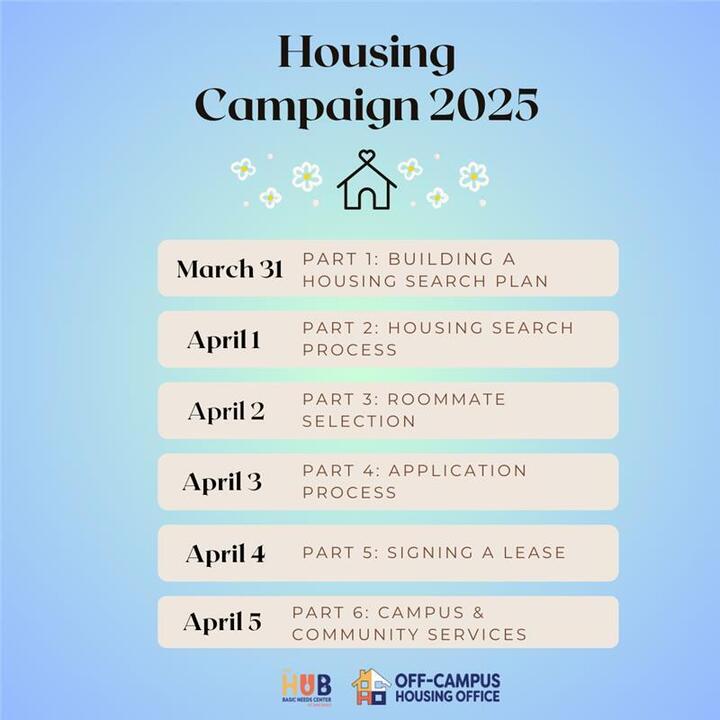
Happy Monday Tritons! This video is part of our NEW 2025 Housing Educational Campaign! 🏡❤️
In this video, we discuss how to build a Housing Search Plan! 📚✨
Join us tomorrow where we will be breaking down the Housing Search Process! 🔎
Happy Tuesday Tritons! This video is part of our NEW 2025 Housing Educational Campaign! 🏡❤️
In this video, we discuss how to start the Housing Search Process! 🔎
Join us tomorrow where we will be diving into Roommate Selection! 🏠
Happy Wednesday Tritons! This video is part of our NEW 2025 Housing Educational Campaign! 🏡❤️
In this video, we discuss how to navigate Roommate Selection! 🏠
Join us tomorrow where we will be breaking down the Application Process! 📝
Happy Thursday Tritons! This video is part of our NEW 2025 Housing Educational Campaign! 🏡❤️
In this video, we discuss how to navigate the Application Process! 📝
Join us tomorrow where we will provide a breakdown of what to do before and after Signing a Lease! ✍️
Happy Friday Tritons! This video is part of our NEW 2025 Housing Educational Campaign! 🏡❤️
In this video, we discuss what to do before and after Signing a Lease! ✍️
Join us tomorrow where we will be talking about helpful Campus & Community Services! 🦋
Happy Saturday Tritons! This video is part of our NEW 2025 Housing Educational Campaign! 🏡❤️
In this video, we discuss helpful Campus & Community Services! 🦋
Aaaand that’s a WRAP for our 2025 Educational Housing Campaign! Good luck students! 🤝🏘️✨
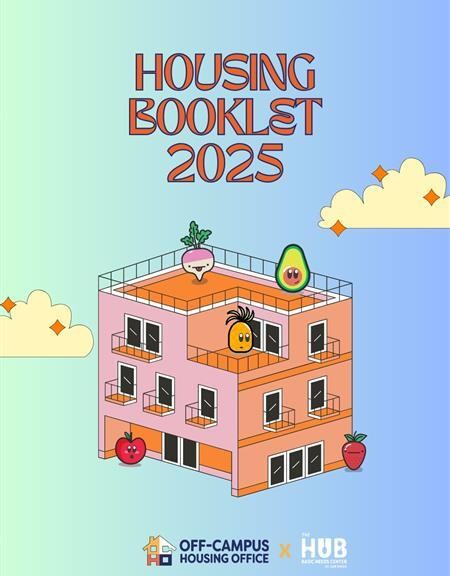
The purpose of the UC San Diego Housing Booklet is to be transparent, providing UC San Diego students with intentional information as it relates to UC San Diego Off-Campus Housing. This booklet will breakdown housing as a larger concept: strategizing the housing search process, finding roommates, navigating applications, leasing information, as well as campus and community resources.
TThe Basic Needs Off-Campus Housing Office at UC San Diego hosted a 6-week Educational Campaign during Spring 2024 discussing how to be a civically engaged renter. As students, it’s important for us to know about civic engagement and how to advocate for ourselves—especially when it comes to our rights to fair and just housing! Check out our Housing Booklet or our six part series from 2024 below to learn how to be a civically engaged renter!
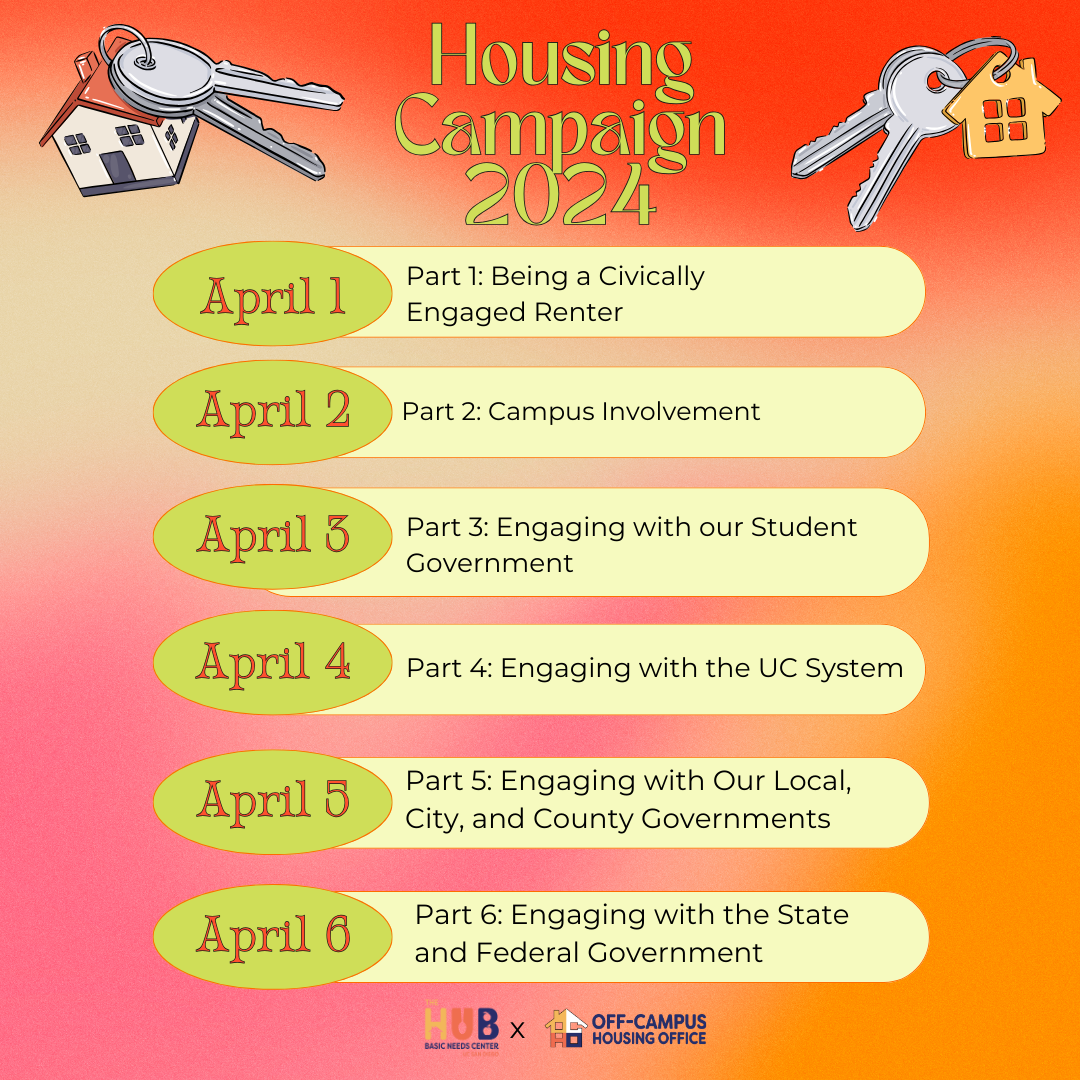
Hi, Tritons! Welcome to the first video of our 2024 Educational Campaign! This year’s educational campaign will focus on how to be a civically engaged renter.
Purpose of Campaign
We want to center this year’s educational campaign around civic engagement because as students, it’s important for us to know how to advocate for ourselves—especially when it comes to our rights to fair and just housing.
Through this video, we are hoping to help students better understand the difference between advocacy and activism, and to find clarity in how they can support and engage in powerful opportunities as it relates to adequate housing.
What is advocacy?
First, let’s talk about advocacy. Advocacy is the core activity of all social movements. It is the act of persuading or arguing in support of a specific cause, policy, idea, or set of values. In our daily lives, we engage in various conversations with individuals and groups that shape our collective understanding of issues.
Being an advocate means actively participating in these conversations and learning about the issues that matter. But, it’s not just about speaking, it’s also about actively listening first.
There are many different examples of advocacy, one of which includes letter writing. Letter writing is a great way to voice opinions and concerns on behalf of an individual or group. 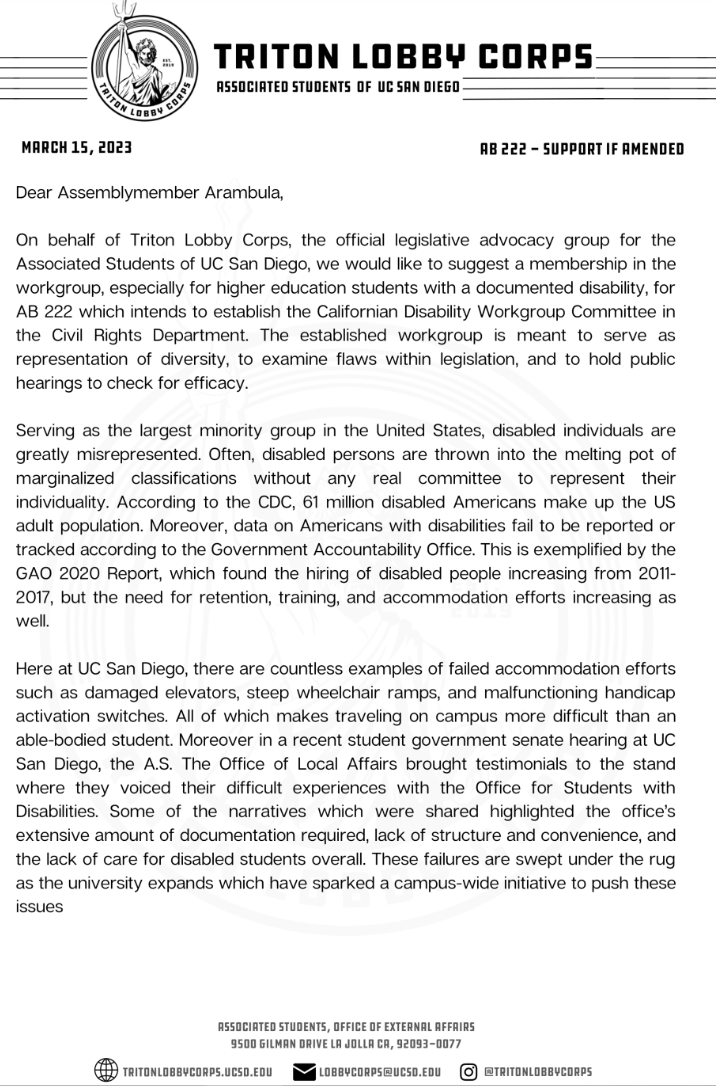
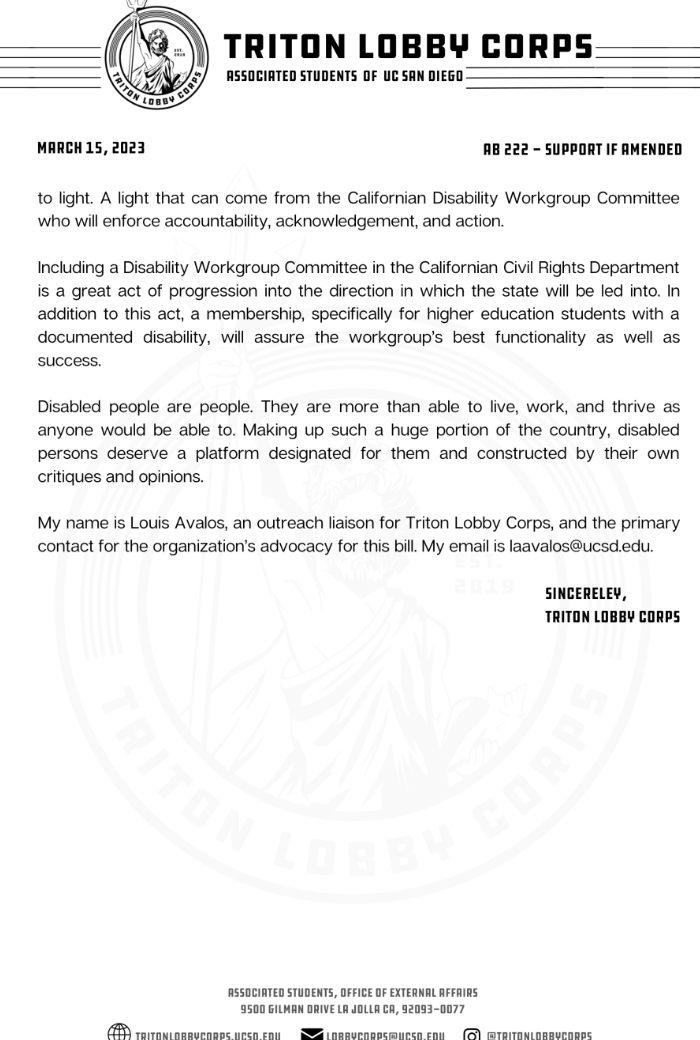
Overall, advocacy is not just about speaking; it’s about listening, empathizing, and connecting with people.
What is activism?
On the other hand, activism is the idea of using our voices and actions to bring about change in the world. Take boycotting, for example. Have you ever decided not to buy something from a company because they're not treating their workers right? That's a form of activism!
It's like saying, "Hey, treat your people well, or we won't support you." A decline in consumerism makes people in power listen, and the more people the better.
Additionally, activism can be big marches, powerful speeches, or even just spreading the word. Think of Martin Luther King Jr., a true hero of social activism. So, whether it's through not buying that unfair product, joining a march, or speaking up for what's right, we can all be activists in our own way.
Connections between advocacy and activism
Now, let’s see how advocacy and activism connect. Both advocacy and activism entail folks coming together to generate change; both require awareness and knowledge of a common goal. Overall, advocacy includes more listening & learning, while activism consists of more action & vocalization.
How it relates back to housing for students
Now, let’s relate this back to your rights to fair and just housing. Housing is a fundamental human right. Adequate housing ensures a safe, stable, and supportive environment for academic success.
Many college students face housing-related challenges. Some of these challenges include rising costs, unsafe conditions, or housing discrimination. And, it's important to mention that most of these barriers tend to be out of our control.
Thus, advocacy plays a crucial role in addressing these issues. When it comes to housing rights for college students, advocacy can take several forms.
One example could be student-led campaigns. Students can initiate campaigns to raise awareness and demand affordable housing options from their universities and local governments. One example of student-ran initiatives are the UC Student Association campaigns. UCSA is a coalition of students and student governments that aim to provide a collective voice for all students through advocacy and direct action. They have programs ranging from providing holistic resources for academic success to ensuring affordability, quality and access to the University of California.
Activism goes a step further by taking direct action to bring about change.
Examples of activism have been UCSC’s students' demand for on-campus housing, Cal Poly's protest to stop student homelessness, and UCSD's Housing Justice Rally.
Activists may also engage in legal action, such as working with lawyers to address housing discrimination. At UCSD specifically, Student Legal Services provides counseling on various legal matters including housing rights and landlord-tenant issues for registered undergraduate and graduate students.
Conclusion
As the first part of our educational campaign comes to an end, we would like to say thank you so much for all your time and energy. Through this video, we hope that you were able to gain a better understanding of the tools you can use to reclaim your power as a college renter; remember that positive change begins with us, as students, taking direct action and standing up for our rights. Never forget that your voice has the ability to make an impact!
As always, feel free to reach out to the Hub if we can ever be of assistance to you and your basic needs.
Introduction
Hey Tritons! Welcome to the second part of our 2024 Educational Campaign on being a civically engaged renter.
We will be focusing on how to get involved on-campus for housing advocacy and activism. The amazing thing about campus involvement is it can be a more feasible way to approach change to the grand picture of housing affordability.
Campus Involvement
Starting off, a great way to be involved and understand how housing impacts the community is to connect with on-campus student organizations that are already doing this work!
Some organizations that you can check out include:
And of course, the Basic Needs Hub! You can check out our resources such as the previous years’ Educational Campaigns on our website.
And here are some other student centers for reference that you can check out:
Past & Current Actions
Taking the first step towards housing activism can be intimidating, but many students have taken this initiative in the past. For example in 2020, UCSD academic student employees took part in the Cost Of Living Adjustment movement and marched across campus demanding the university to take greater action to reduce the rent burden and promote housing affordability.
Some small steps you can take can be things like volunteering at resource centers and applying for student-centered jobs. Being a part of student organizations can be a great way to discuss shared experiences all while making an impact on and off campus. Remember that fostering community, enjoyment, and self-care are all ways of resisting housing injustice and power structures!
Petitions
Petitions are one way that students have engaged in activism in the past. There was a series of UAW petitions from 2019 to 2021, as well as a petition from the summer Coast apartments in 2018, which was successful! HDH had raised the rent by 17% in two years, and residents pushed back and succeeded in a 2% rent decrease.
If you take a look at the petition they submitted, they professionally demonstrated the issue using evidence, suggesting feasible changes, and explaining why they were reasonable. When working in activism and advocacy in general, this is a good framework to follow. To be on the lookout for current petitions, check out these awesome websites and social media pages!
Representation in Administration
That leads us into our next section—how students can represent themselves in administration. The UC Regents hold monthly meetings which are open to public comment in which important decisions are made for the entire UC system. This is a good place to take on a more active or leadership role. You can also apply to become a Student Representative to the UC Board of Regents, which allows you to have direct access to the Regents to speak on behalf of students.
Associated Students also holds open meetings. However, as we mentioned before, it’s helpful to come to the table with suggestions and solutions instead of only mentioning the initiatives that one is unsatisfied with.
Conclusion
Navigating the process of activism and advocacy for affordable housing can be a scary process, but know that you’re not alone in facing this journey. There are various campus resources and previous activist efforts that have paved the way in demanding that student voices be heard.
Introduction
Hi Tritons! Welcome to the third part of our 2024 Educational Campaign on being a civically engaged renter.
Overview of Last Video
Last video covered how to get involved on campus for housing advocacy and activism. In this video, we will be focusing on how you can engage with our student government, Associated Students, as a way to advocate for housing stability.
What is Associated Students?
To start off, each year, students can be elected as either an AS Executive Officer or Senator.
Senators are responsible for creating legislation and spearheading personal projects. As students, we should stay up-to-date on these projects to ensure that AS is representing each group's interests!
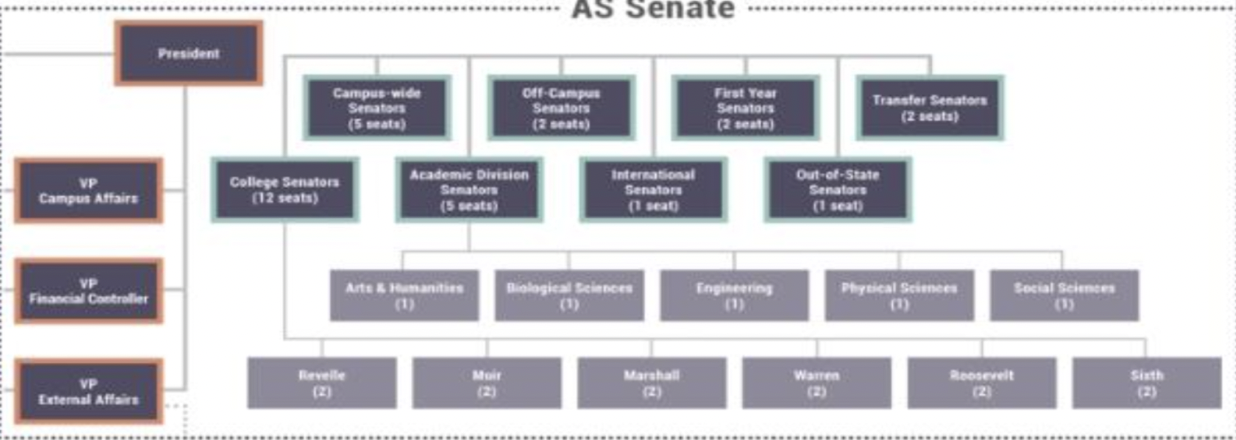
For example, check out the initiatives some of the senators are working on. Christina Green, Campus-Wide Senator, is collecting research on housing insecurity and houselessness in San Diego. While Marysol Valdez, the Off-Campus Senator, is working to increase funding for transportation services.
Another way to engage with the AS Senators is to shift their attention towards advocating for more affordable housing near campus!
The AS Executive Board is responsible for a wide variety of tasks:
External Affairs serves as the link between student government to systemwide UC officials by the following:
As a result, the different branches of student government are able to all come together to show that a collective voice can be an empowering tool.
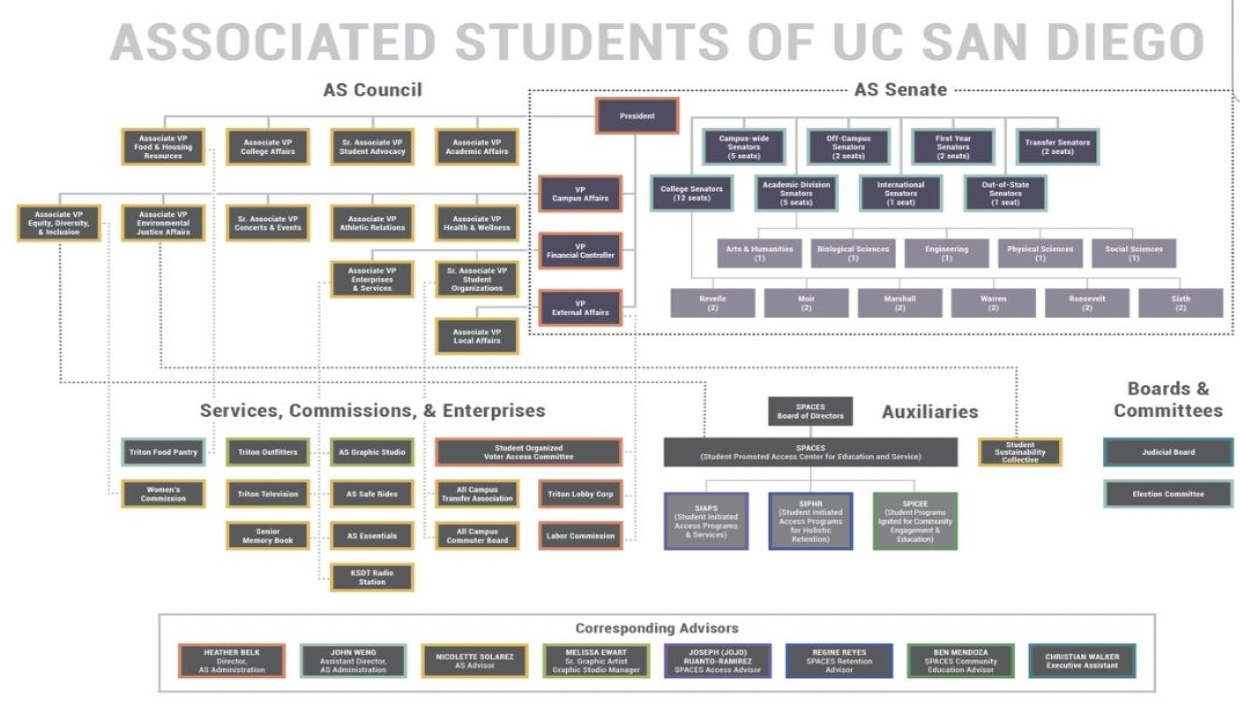
So, the AS President oversees the Executive Offices, serving as a bridge between student government and campus administration.
As college renters, it’s crucial we stay involved with AS. That way, Executive Officers are aware of our housing concerns and bring them to the forefront of discussions when meeting with UC Admin and local representatives, especially within rent control and resource allocation to food and housing programs.
AS also has 12 AVP’s, also known as Associate Vice Presidents, and their respective offices are tasked to collaborate with campus partners and advocate for students…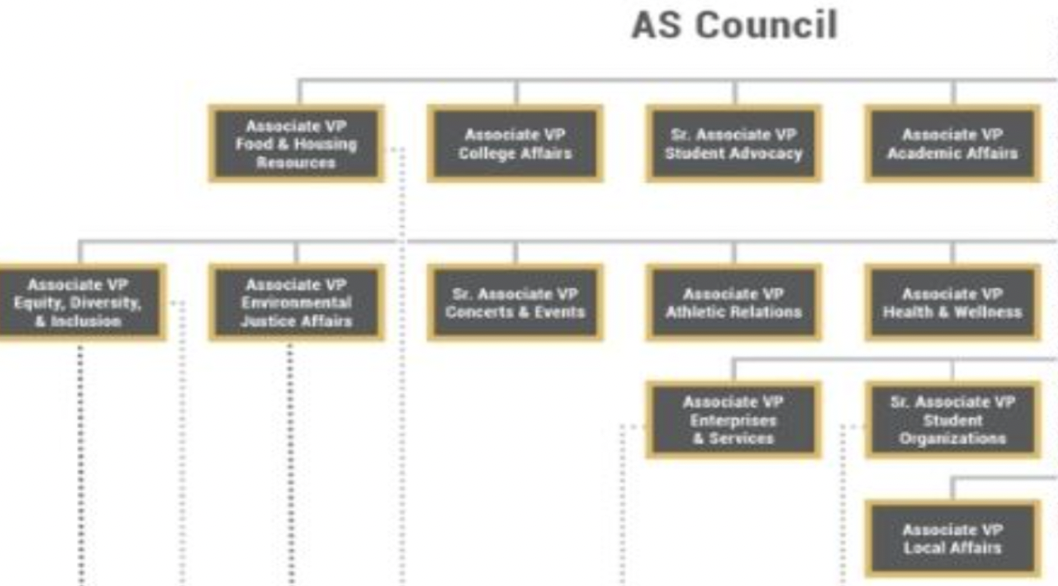
Here’s some relevant offices that can help shift the housing crisis outlook. For example, we have Food & Housing as well as Local Affairs.
These offices can serve as a great resource to improve quality and affordability in food and housing programs, build cross-cultural connections, and branch out to local, state, and federal governments in order to solidify change legislatively.
Finally, these are additional services that branch off from AS Council such as the Triton Food Pantry which increases student access to nutritious foods and the Triton Lobby Corps where students can engage in city discussions surrounding housing policies.

Engaging with AS Representatives
Now that you have a better idea of how AS is structured, you may be asking yourself, “Where do I come in?”
Don’t worry! You can engage with your AS representatives by attending AS meetings, submitting written remarks, and attending representative’s office hours.
Before attending, we strongly recommend reading the Order of Business to be aware of the meeting’s schedule. Don’t forget to use public input as a way to bring up any questions or concerns, or just comments you have for the board.
Lastly, be sure to stay up to date with AS happenings and vote during AS election season every Spring Quarter. In this way, we can ensure transparency on proposed changes to budgeting, legislation, upcoming projects, and current senate discussions. Do not lose sight of the fact that this all plays an important role in advocating for our housing rights at large!
So, that concludes this week’s video, thank you all for turning in and know that above all, your voice has the power to enact change! We have the right to advocate for our Basic Needs, as they are our human rights.
Introduction
Hello fellow Tritons! Welcome to the fourth part of our 2024 Educational Campaign.
So, last week's video covered how to engage with our student government, Associated Students. This week, we will be focusing on civic engagement with the UC system as it relates to housing.
UC System and Student Housing
To begin, how does the UC system tie into student housing?
Well, the UC’s fall under California’s public university system and while housing options range between each of the ten campuses, most UC’s provide a two-year housing guarantee, much like UC San Diego.
Despite many of the UC’s being situated in areas with a high cost of living and rent prices that aren’t very student friendly, this two-year guarantee serves as a great help to bridge some of those gaps.
Given that single bedroom apartments can run for upwards of $2,000/month in La Jolla, living on-campus is a priority for many students.
While the UC’s do offer convenient housing, it’s important that it is affordable as well.
Fortunately, the UC’s offer different grants for students eligible for Financial Aid through FAFSA or the CA Dream Act.
These grants can be provided at the federal, state, and university level. Think of the Pell Grant, Cal Grant, or the UCSD Blue & Gold Grant for instance. Note, eligibility will look differently if you are a undergraduate or graduate student.
Resources
the Pell Grant, CSo, whhat resources are available to you when navigating off-campus housing? As a college renter, it's crucial to seek out assistance. Here at the Basic Needs Center, our Off-Campus Housing Office can help you navigate the ins and outs of the housing process.
No question is too silly! Not sure how to budget? Submit a housing application? Are you currently in between leases? We got you! Whether that be through a 1:1 Housing Consultation or browsing the Off-Campus Housing website, our team is here for you every step of the way.
Engaging with the UC System
But, how can we engage with the UC system?
So, as we reviewed in last week’s video discussing Associated Students, a great start is by staying involved with your student government. In this way, Executive Officers are aware of our housing concerns and bring them to the forefront of discussions when meeting with UC Admin and local representatives.
But did you know the UC system has its own form of student government representing all ten campuses? This is the UC Student Association or UCSA, and their mission is to advocate on behalf of students for the accessibility, affordability, and quality of the UC system.
If you’d like to get involved with UCSA to represent the voice of our campus community, you can! Students can apply to become a Student Representative to the UC Board of Regents and get involved in statewide student advocacy surrounding housing policies!
You can check them ou!
But wait, what’s the Board of Regents?
Well, the UC system is governed by a Board of Regents representing all ten campuses and they handle the decision-making around university policies, financial affairs, tuition, and fees.
The board has 26 voting members, most of them appointed by the Governor of California to serve 12-year terms.
As the governing board, they appoint one student regent to a one-year term and the university president, currently, being President Drake.
But as students, how do we get in touch with them? Through public comment! Simply sign up for an upcoming meeting and be ready with your comments addressing the agenda items.
Not able to attend? The Regents also welcome students to share their concerns or views by emailing regentsoffice@ucop.edu.
Both public and written comments are powerful tools for making your voice heard, know that your input is essential to the development of housing policies that impact our campus community.
Remember that advocacy not only helps the individual, but has the power to uplift those around you as well.
Conclusion
That being said, advocating for housing stability will take a village, and that’s because community issues require a community response! So make your voice heard and remember that you are not alone!
Introduction
What’s up, Tritons! Welcome to the fifth part of our 2024 Educational Campaign!
Housing in La Jolla
To begin, La Jolla is a city with a high cost of living and rent prices that aren’t very student friendly. The average rental price in the city is around $3,400, of course differing with square footage. Unfortunately, this price reflects the wealth-demographic that dominates the area around our campus.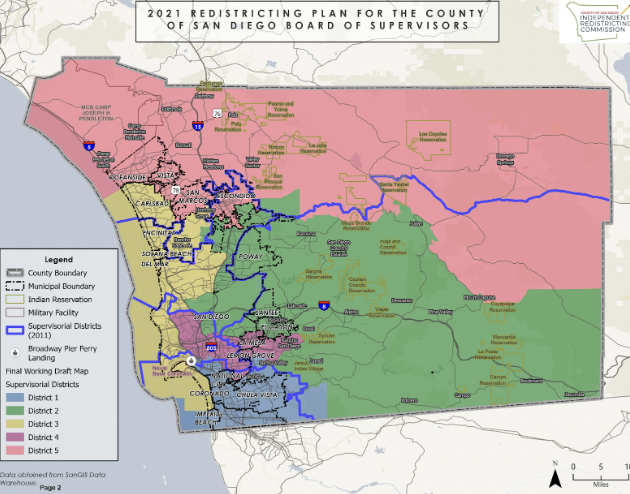
Affordable housing developments usually call for high density urban planning which some local residents are opposed to. Transparently, UC San Diego being situated within La Jolla’s district lines skewed efforts away from student needs, as seen in the 2021 San Diego redistricting process.
With an average household income of $160,000 in La Jolla, action that calls upon creating solutions for affordable housing tends to be swayed.
As UCSD students, we not only feel out of place in these discussions but we begin to feel hopeless in an off-campus housing system that wasn’t created for us to thrive in.
Additionally, the pandemic had a direct impact on the San Diego housing market.
As a result of the pandemic, many students were pulled out of the region and units that once housed students became privatized.
Once our institution reopened, waves of students were met with the effects of the San Diego Housing Crisis. Off-campus housing units were at 100% occupancy and on-campus housing were at max capacity as well.
What can we do?
While navigating the housing crisis can bring a lot of emotions such as fear and frustration, there’s plenty that we can do within our campus community!
As students, it’s important to be in spaces that advocate for affordable housing.
OTTA United is a non-profit organization that was founded here at UC San Diego by student Aidan Lin.
With multiple social issues to address, housing is of their major priorities as housing access & equity intersects with plenty of societal issues.
You can check them out on their Instagram!
Moreover, the Western Service Workers Association is a community-outreach volunteer program with a chapter based in San Diego.
This program prioritizes their focus on providing basic need services for community members while building community coalition. You can reach them at 619-238-0763!
These are just two of many examples in which you can involve yourself in regards to organization-based advocacy. It seems difficult to imagine what you can do as a student BUT here’s how to engage with our state and local representatives.
Engaging with State and Local Representatives
UCSD is located in the 38th District of California, and our State Senator is Catherine Blakespear.
We are also located in the 52nd Federal District of the U.S. and Congressman Scott Peters serves us.
Additionally, our California Assemblymember is Tasha Boerner.
Call our state representatives, reach out, visit their offices. When you reach out to them, share your personal story of navigating housing costs in San Diego or La Jolla as a UC San Diego student.
It’s important to reach out to our local folks, such as San Diego Mayor, Todd Gloria. You can call or visit his office to voice your concerns on housing related issues.
AND you can always speak up in person or virtually at the San Diego City Council meetings during Public Comment.
The San Diego City Council meetings are held on Mondays and Tuesdays. And here’s the link!
Conclusion
Think about the system that has been constructed around you and re-imagine what a system would look like that provides valuable and humane housing rights to all. Question the “normalities” that were created around housing and then think of housing as a human right. Consider how your voice matters as a student!
Let’s start engaging with our representatives who have influence in our local, city, and county governments so we can make housing affordable for all students.
Introduction
Hello fellow Tritons! Welcome to the FINAL video of our 2024 Educational Campaign!
State and Federal Levels
Moving up the governmental ladder, each branch of government plays a different role in shaping, enforcing, and interpreting policies.
These platforms help you find your legislative representatives, understand their voting patterns, and stay informed on housing policies.
Civic Engagement
Now, let's explore civic engagement at the state and federal levels. Students in California can participate in shaping policies that impact their housing situation by participating in committee hearings like those of the CA State Assembly Higher Education Committee or CA Senate Education Committee in Sacramento.
You can also stay informed about state agencies, governmental services, and resources related to housing using these platforms:
Housing at the State and Federal Levels
Now, let's zoom in on housing. Access to housing records is essential for transparency.
Laws like the California Public Records Act and the Freedom of Information Act (FOIA), empower you to keep up with records relating to housing, such as property assessments, building permits, occupancy permits, and housing code violations.
Navigating Housing as a First-Time Renter
Now, How would you navigate this as a first-time renter? Educate yourself on tenant rights, stay informed about housing policies, and actively participate in community discussions to ensure that your voice is heard.
For instance, San Diego’s Tenant Protection Ordinance is an example of a housing policy that aims to reduce evictions and strengthen tenant protections that would be valuable to be aware of.
Campaign Recap
To recap this year's education campaign on civic engagement, we've covered a spectrum of crucial topics. We've distinguished between advocacy and activism, received guidance on campus involvement, as well as gained insights into engaging with A.S., the UC system, local spheres, and state and federal entities.
As we embark on the path of first-time renters education, we can carry this wealth of knowledge to empower ourselves to actively engage, advocate for our rights, and contribute to positive change.
And of course, if you can vote, please do so and remember the importance of civic engagement given that it names that housing is a systemic issue.
Therefore, we have to be involved in systemic processes that treat it as such.
Conclusion
We hope this video was able to inform you on how to be a civically engaged renter as it relates to the state and federal level, and that it will help our community take action and unite with our values, such as housing as a human right.
On behalf of everyone on our team here at the Basic Needs Off-Campus Housing Office, thank you for following our 2024 Educational Campaign. Till next time!
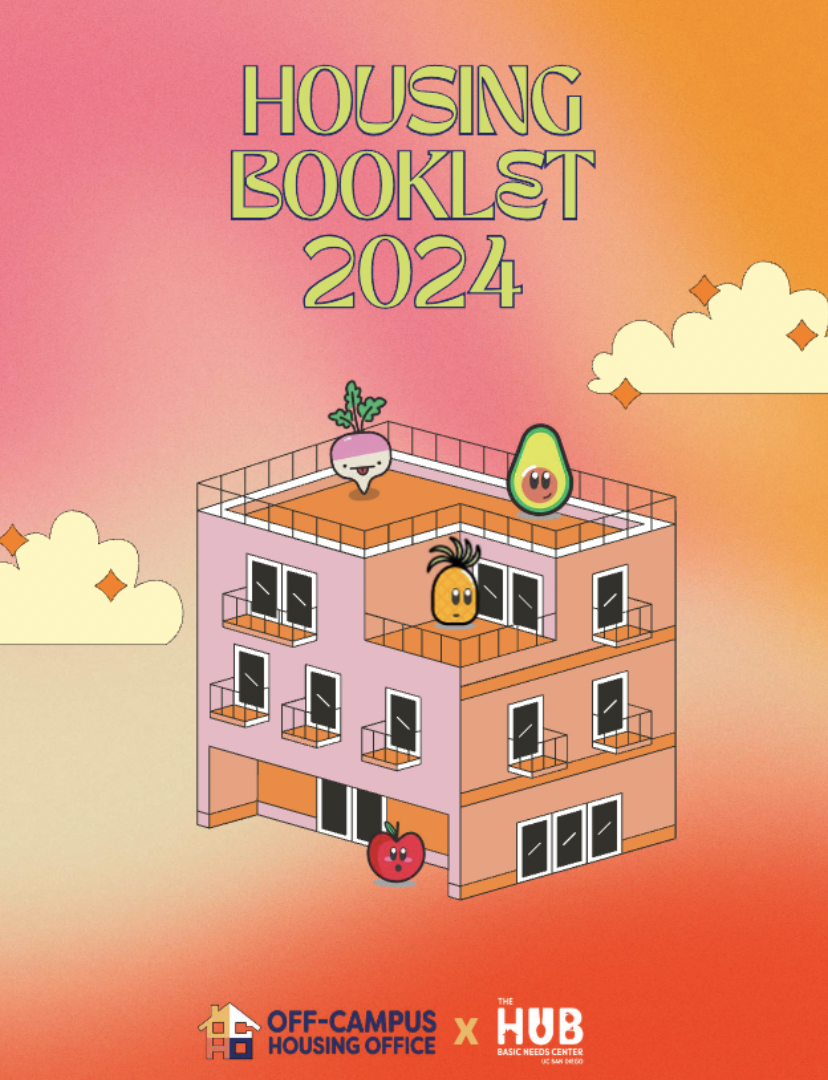
The purpose of this edition of UC San Diego Housing Booklet is to be transparent, providing UC San Diego students with intentional information as it relates to UC San Diego Off-Campus Housing. This booklet will dive into housing and civic engagement, elevating common off-campus housing experiences within different aspects of civic duty and participation. Check it out to learn about intentional services available as well as helpful recommendations!
The Basic Needs Off-Campus Housing Office at UC San Diego hosted a 6-week Educational Campaign during Spring 2023, diving into housing and identity and elevating common off-campus housing experiences within different student communities. Check out our Housing Booklet or our six part series from 2023 to learn about intentional services available as well as helpful recommendations!
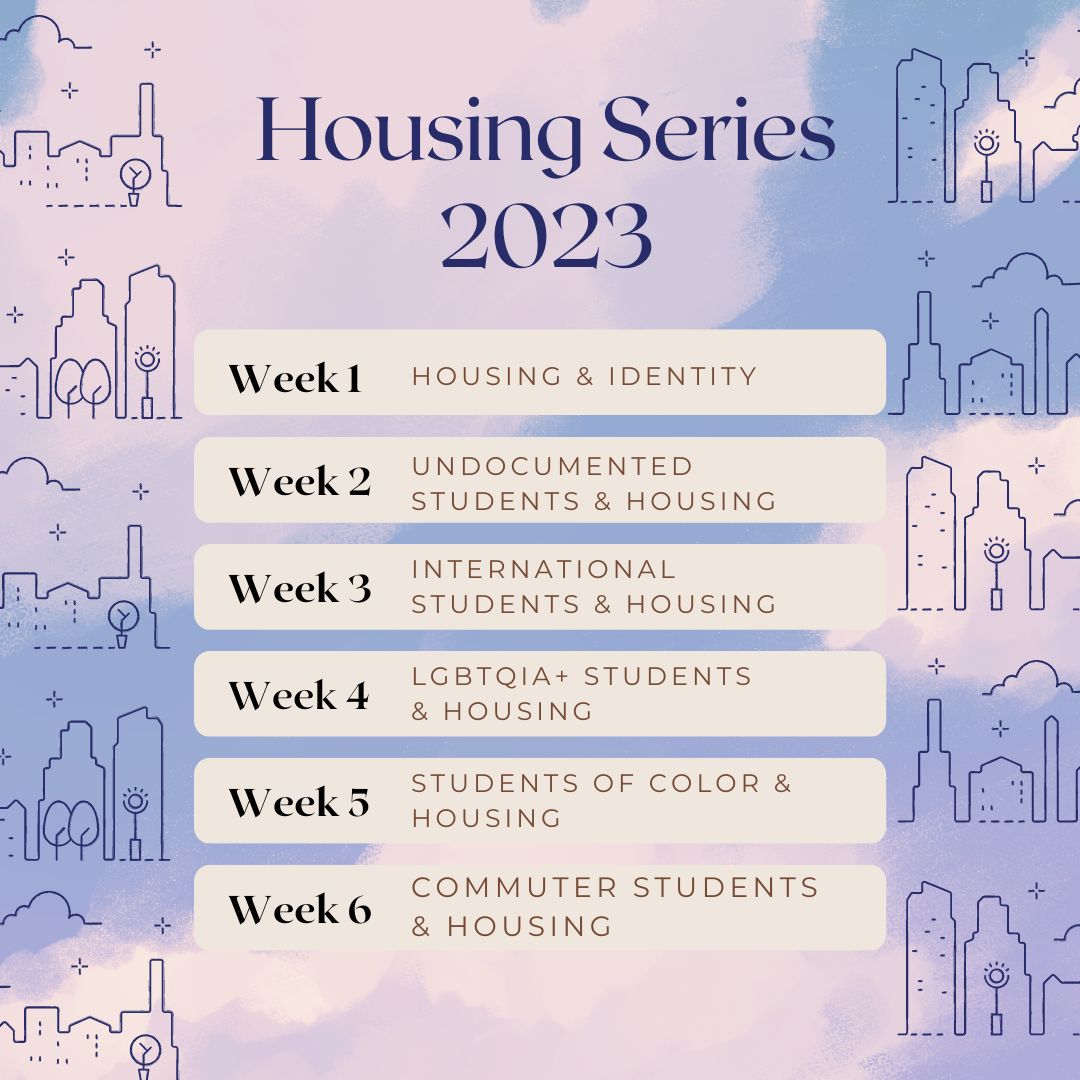
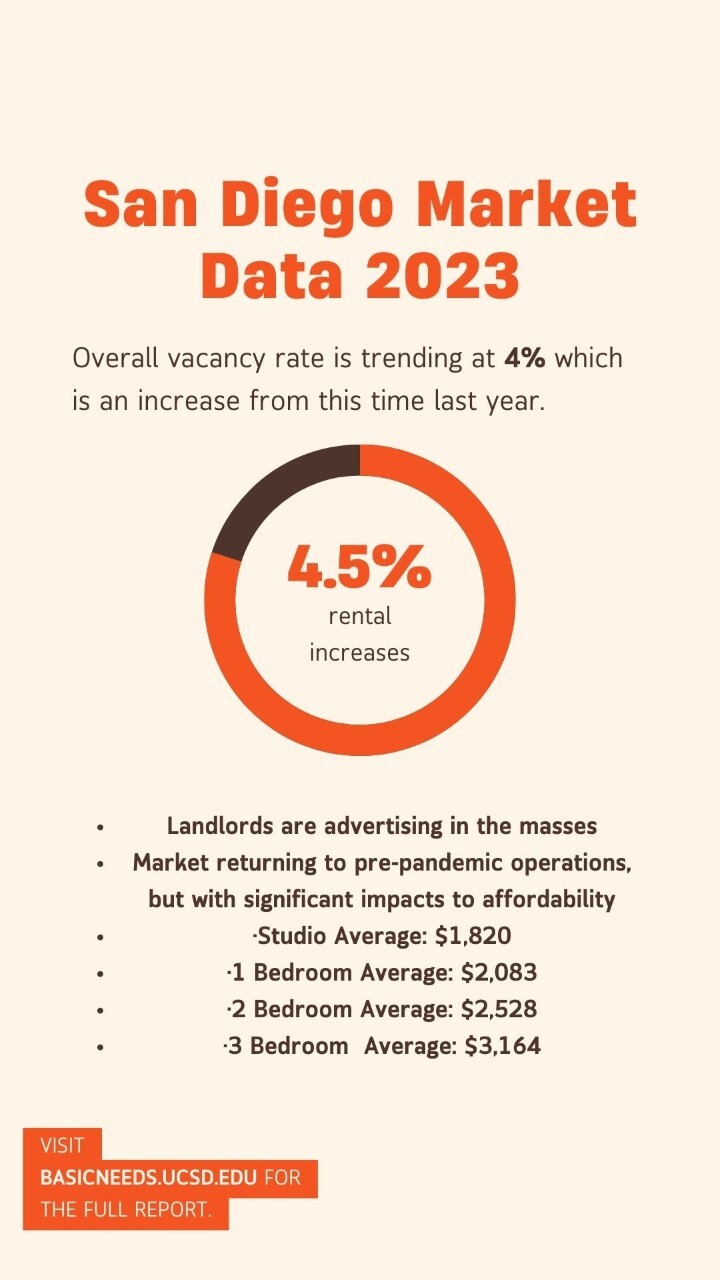
In this video, we introduce our NEW 2023 Housing Educational Campaign and we discuss Housing & Identity!
Now although vacancies in Multi-Family apartments are seeing a slight increase, it still does not align with the vast demand of all of San Diego. Pause here to review San Diego market data for this year, in the graphic above.
The purpose of this campaign continues to be to provide our UC San Diego student’s with relevant resources and knowledge as it relates to housing. This specific series will identify various barriers that student communities often navigate through, uplift existing resources, and give a platform to the varying strategies that assists with equitable access to housing.
This series will center the following: resources for students who may be undocumented, international, LGBTQIA+, BIPOC, and commuter affiliated. Now although we are centering these communities, it does not necessarily mean that these strategies are limited to these experiences. These resources and narratives were gathered in collaboration with various resource centers on-campus who continue to do this work every day!
We are not attempting to speak for these communities, we simply recognize our responsibility to elevate intentional educational materials.
Since the housing market has such a large demand and minimal supply, it allows property management companies and landlords the unfortunate power and opportunity to not center the needs of possible tenants.
Since we know that these unjust issues can occur, we can attempt to reclaim our power in these situations by leaning on the support of various campus resources and truly understanding your rights as a tenant.
By having a deep understanding of these common issues, we can lean into intentional first time renters education in order to hopefully make this process smoother for our students. Come back next week where we will be centering resources for undocumented students.
In this video, we discuss Undocumented Students & Housing!
When it comes to leaning on community and you’re unsure of where to start, consider Undocumented Student Services. Their holistic approach to serving their students is made apparent through resources like: their Housing Brochure highlighting navigational tools, free immigration consultations and case representation, and their Immigration Stability Support Fund for funding support. Additionally, their PACE Fellowship Programs provides experiential learning opportunities and a quarterly scholarship for students without work authorization.
In this video, we discuss International Students & Housing!
We recommend incoming first years apply to on-campus housing ensuring you apply by the priority deadline and, potentially, ERC’s I-House as a way to build community with other international students and meet potential roommates.
In this video, we discuss LGBTIA+ Students & Housing!
In this video, we center common housing experiences felt by UCSD’s students of color and sharing recommendations. Let’s begin!
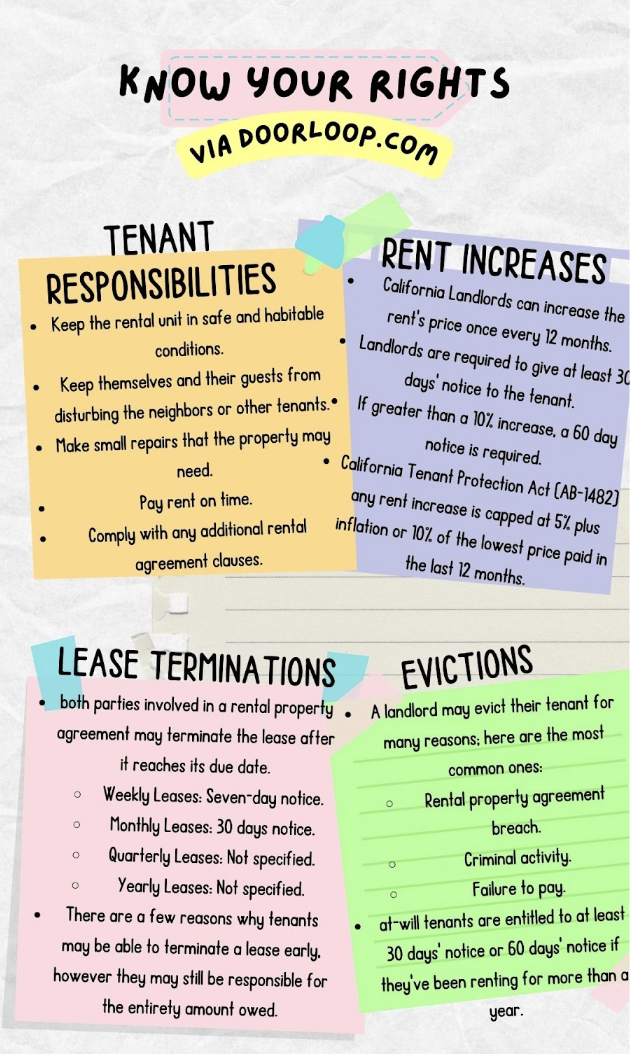
In this video, we center common housing experiences felt by UCSD’s commuter students and sharing recommendations. Let’s go!
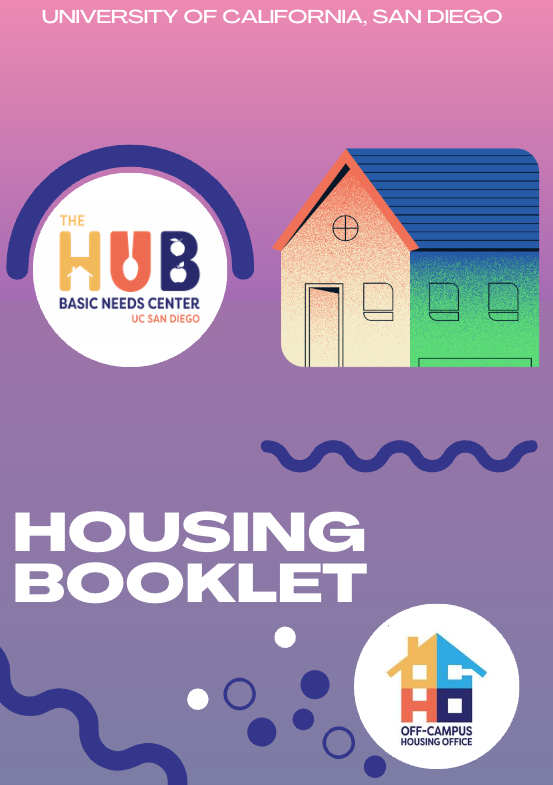
The purpose of this edition of UC San Diego Housing Booklet is to be transparent, providing UC San Diego students with intentional information as it relates to UC San Diego Off-Campus Housing. This booklet will dive into housing and identity and elevating common off-campus housing experiences within different student communities. Check it out to learn about intentional services available as well as helpful recommendations!
The Basic Needs off-Campus Housing Office at UC San Diego hosted a 6-week Educational Campaign during Spring 2022 to breakdown the mundane that is the housing search process. The series begins by centering the content in the deep understanding that housing is a systemic issue that is further inflated by the on-going COVID-19 pandemic and California Housing Crisis. Check out our Housing Booklet or our six part series from 2022 to learn about additional housing resources!
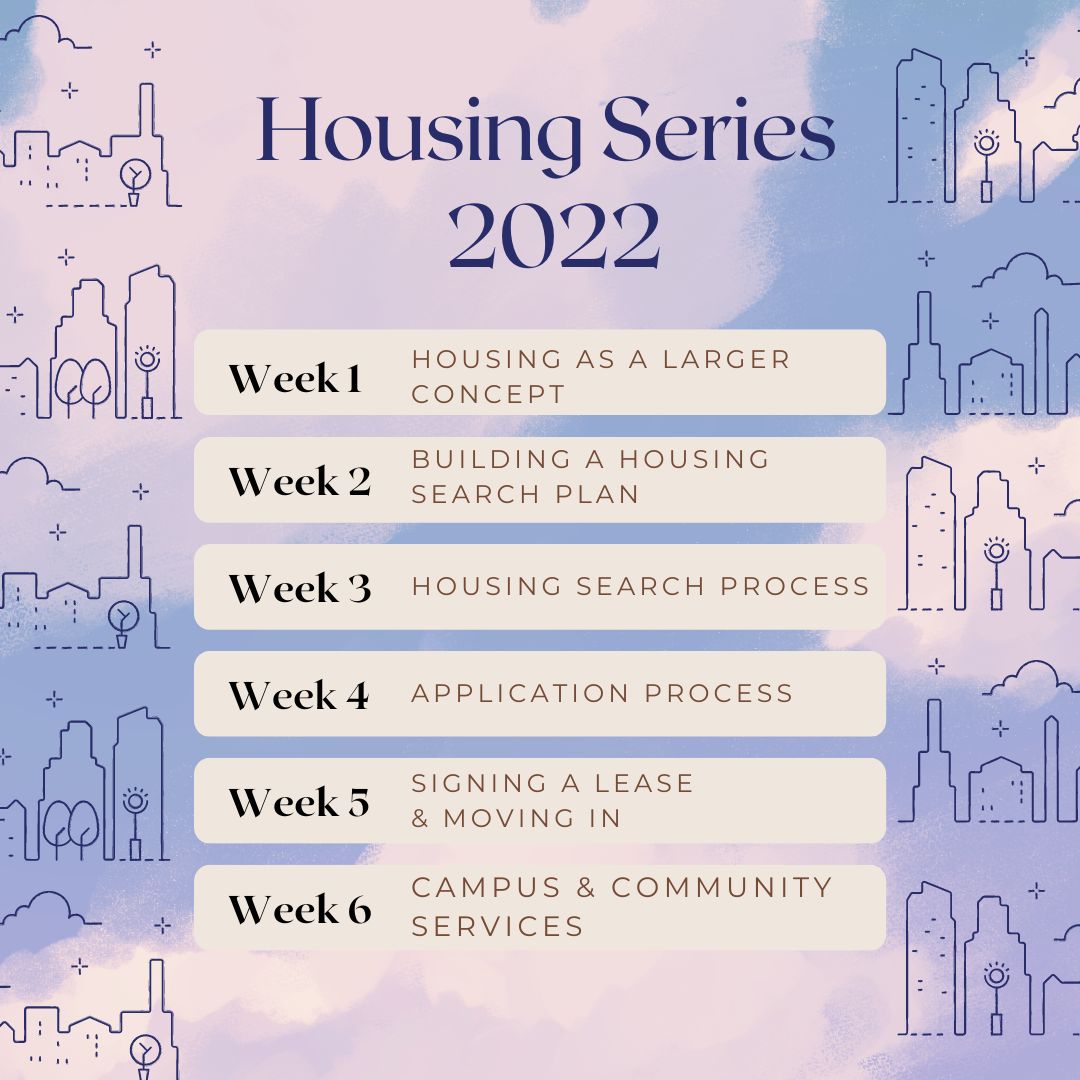
Educational Campaign Week 3 Video Sample 1: please review this Sample Roommate Agreement, prepared by UC San Diego's Student Legal Services as a general guide, which includes more information on what a written roommate agreement could look like to help you and your roommate establish house rules such as, division of household duties, a cleaning schedule, how you'll handle guests, etc.
Educational Campaign Week 4 Sample 1: please review the below document, which includes more information on what materials you should have ready when completing a rental application.
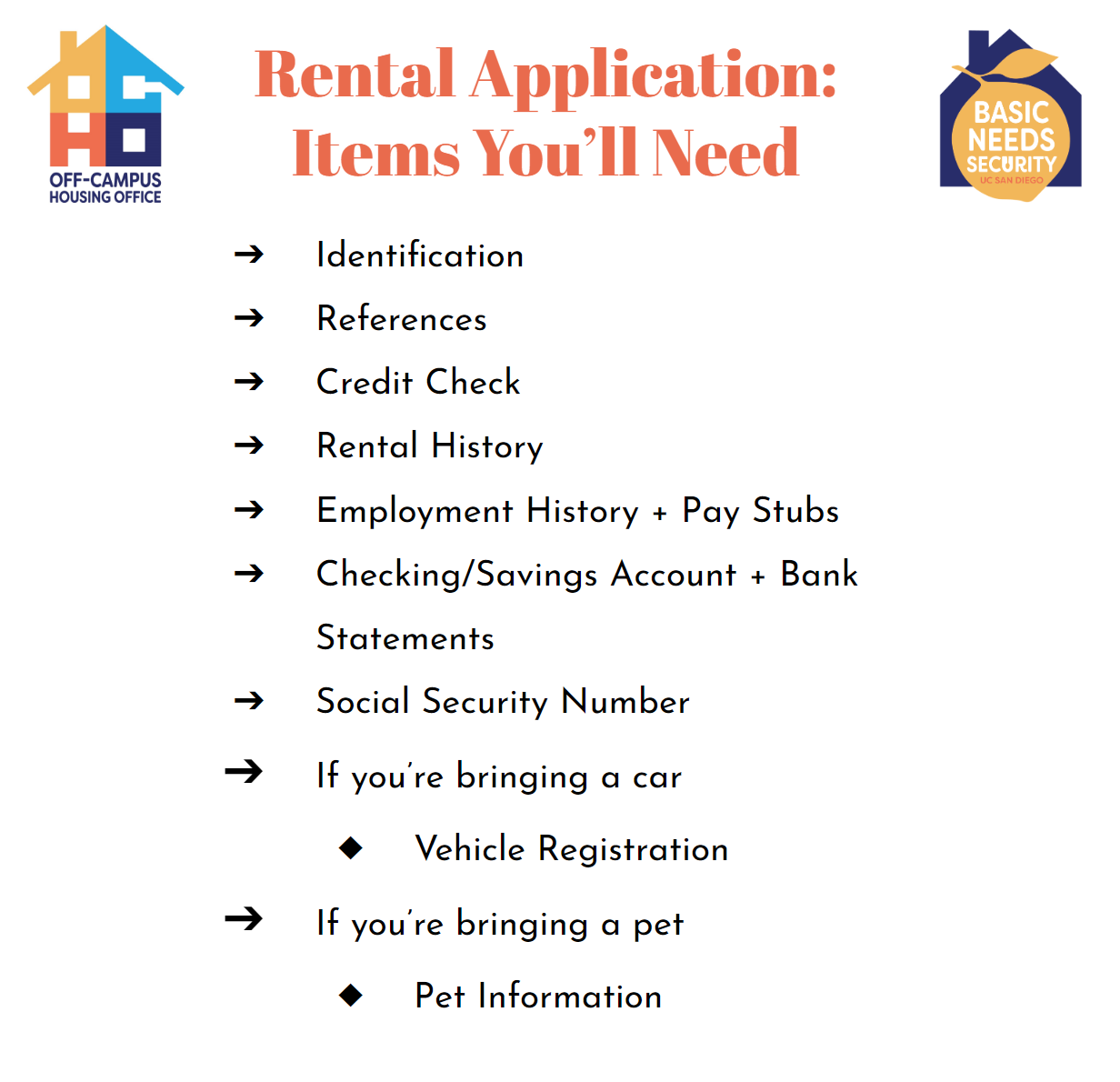
Educational Campaign Week 4 Sample 2: please review the below document, which is an example of a rental application.
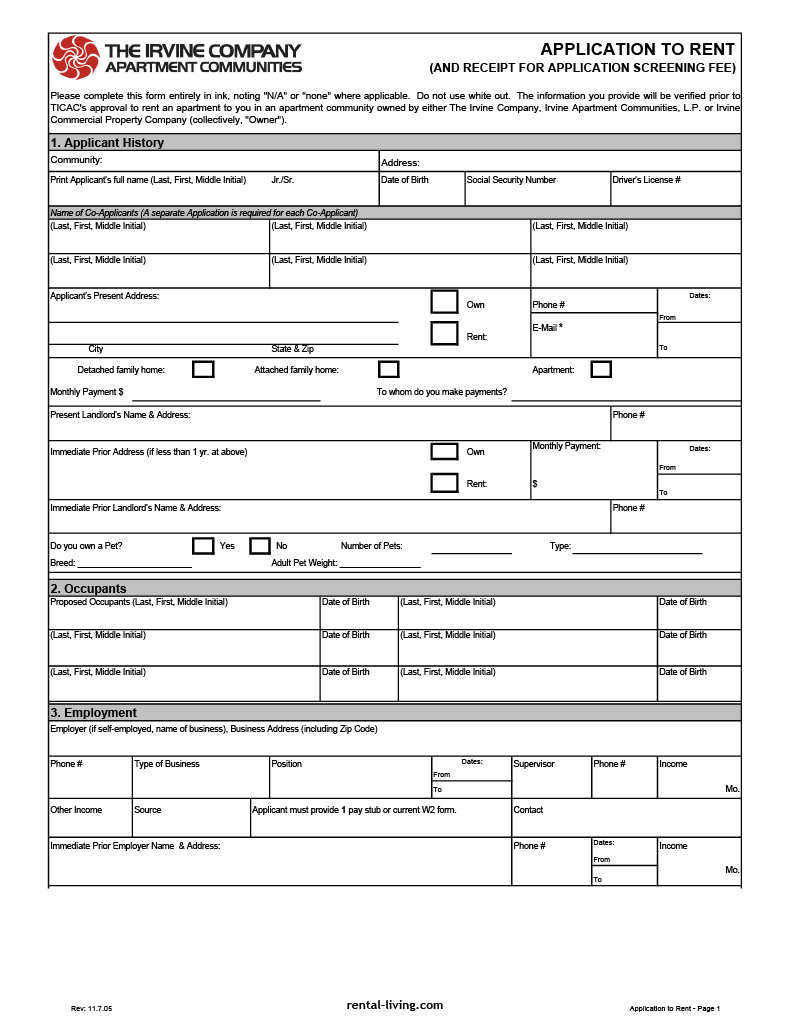
Educational Campaign Week 5 Sample 1: please review the below list of questions to ask of your leasing agent/property manager to better understand their lease policies.
Educational Campaign Week 6 Sample 1: please review the below list of housing resources at UC San Diego.
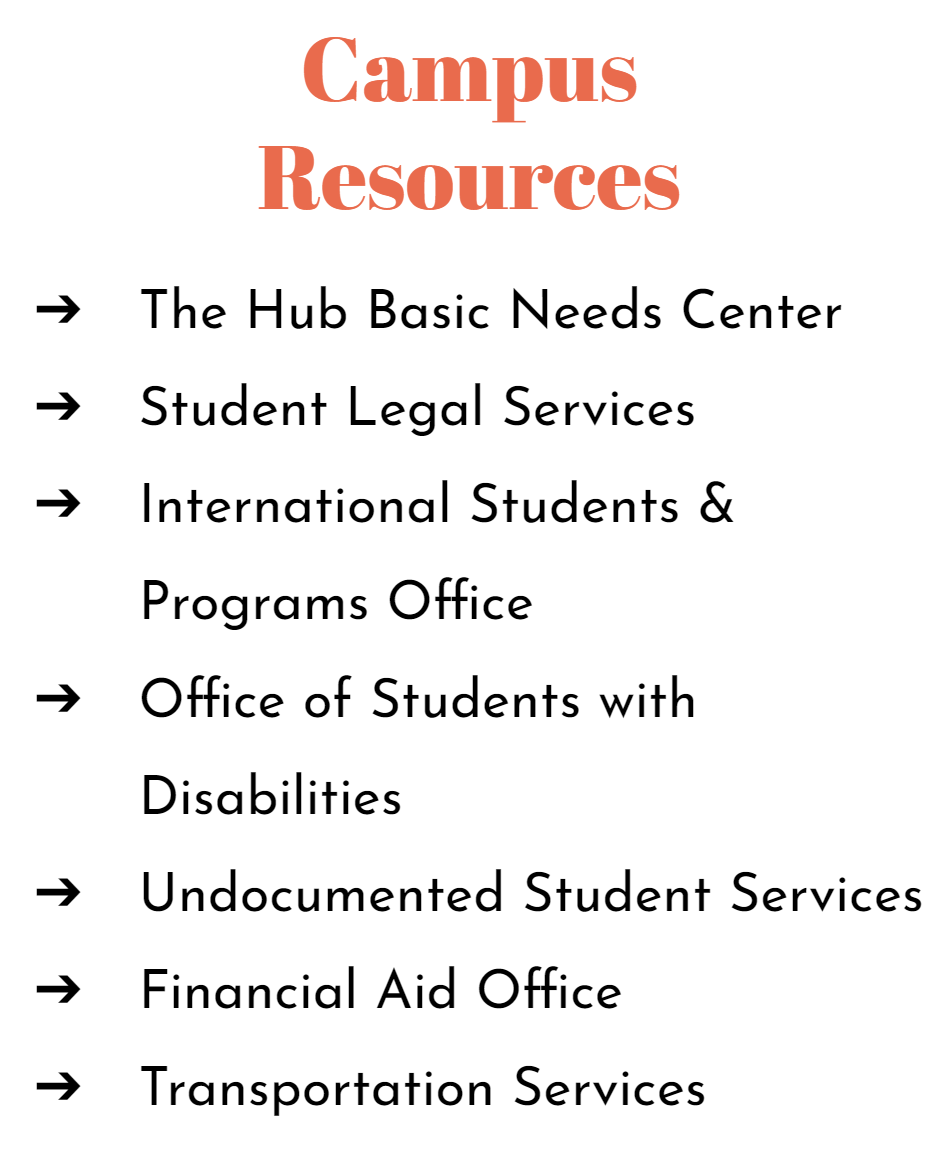
Educational Campaign Week 6 Sample 2: please review the below list of housing resources in San Diego.
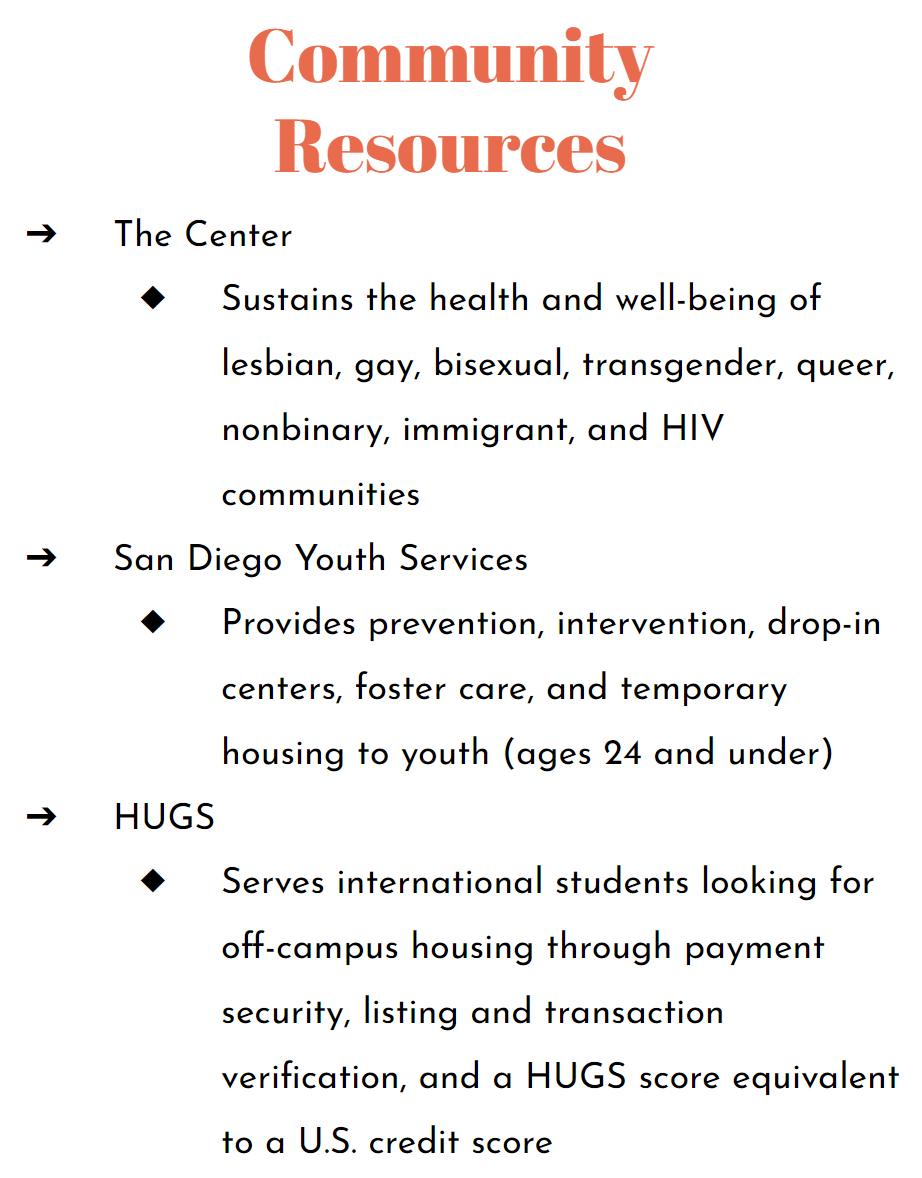
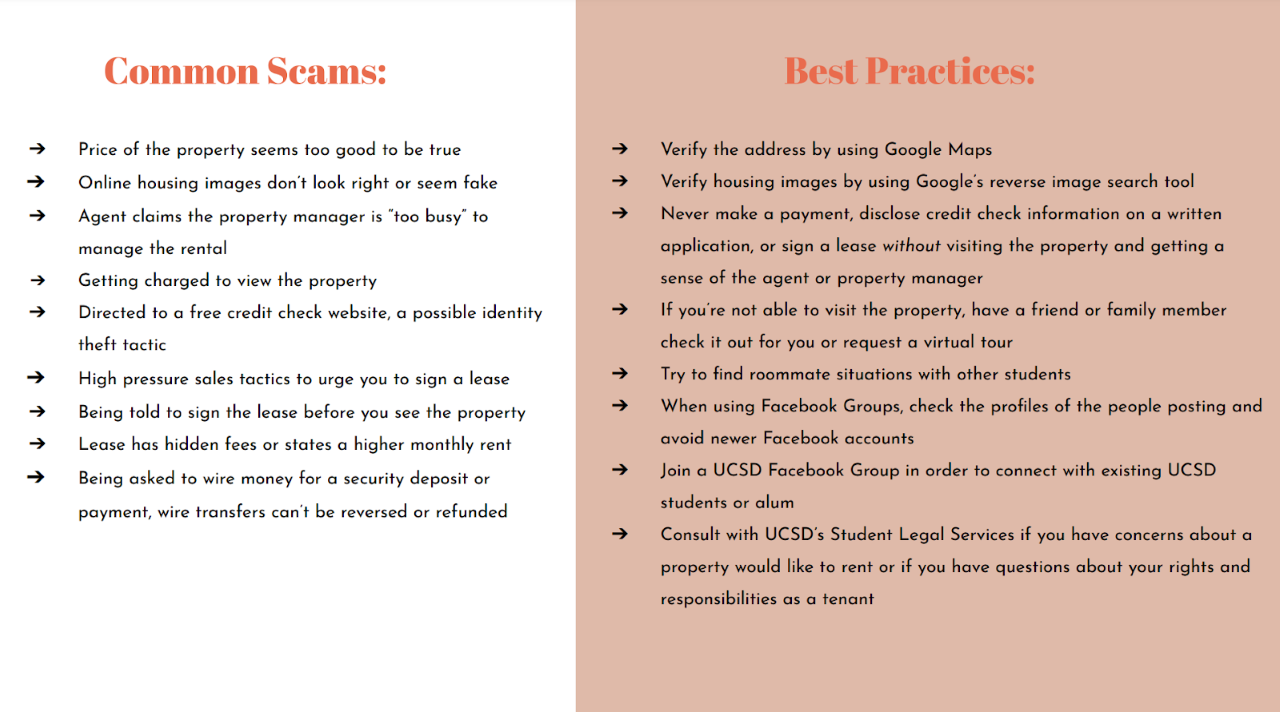
Search Engine Links:
Less Vetted Options:
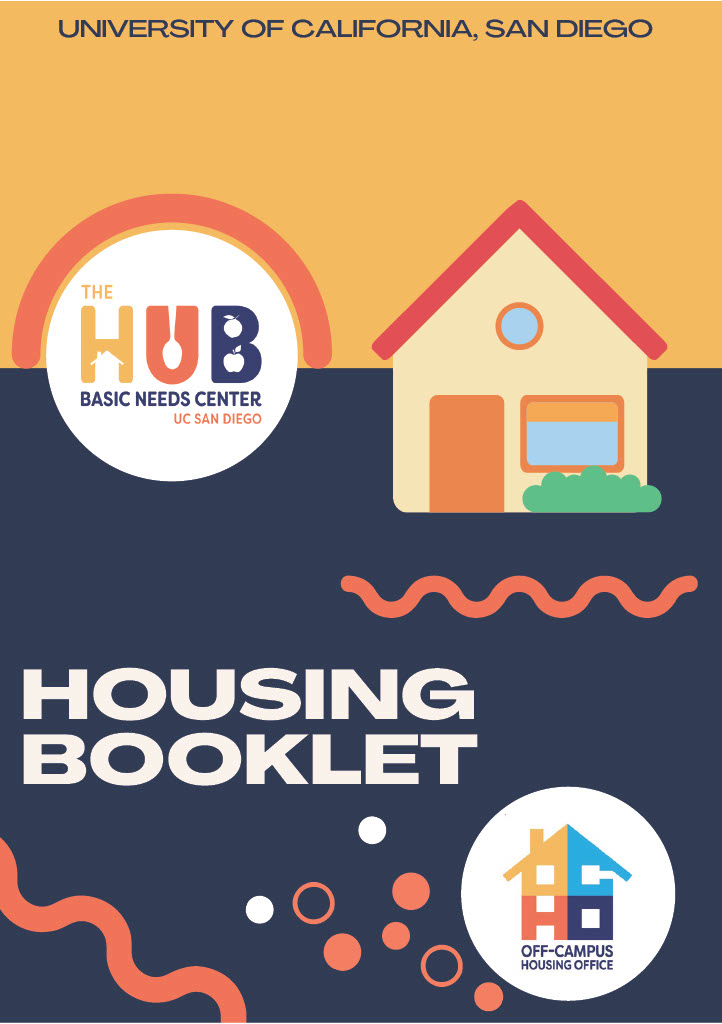
The purpose of the UC San Diego Housing Booklet is to be transparent, providing UC San Diego students with intentional information as it relates to UC San Diego Off-Campus Housing. This booklet will breakdown housing as a larger concept: strategizing the housing search, navigating the application process, leasing information, and community resources available to YOU!